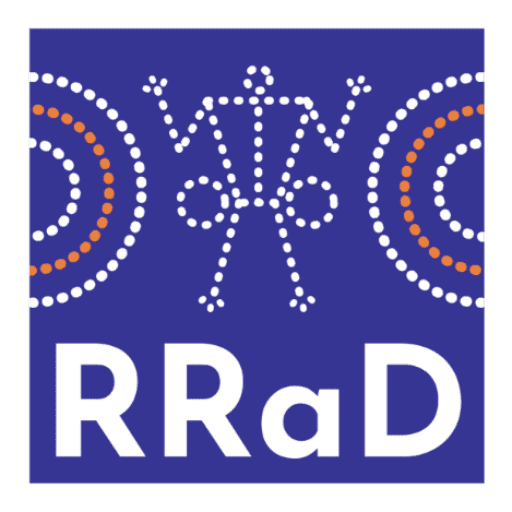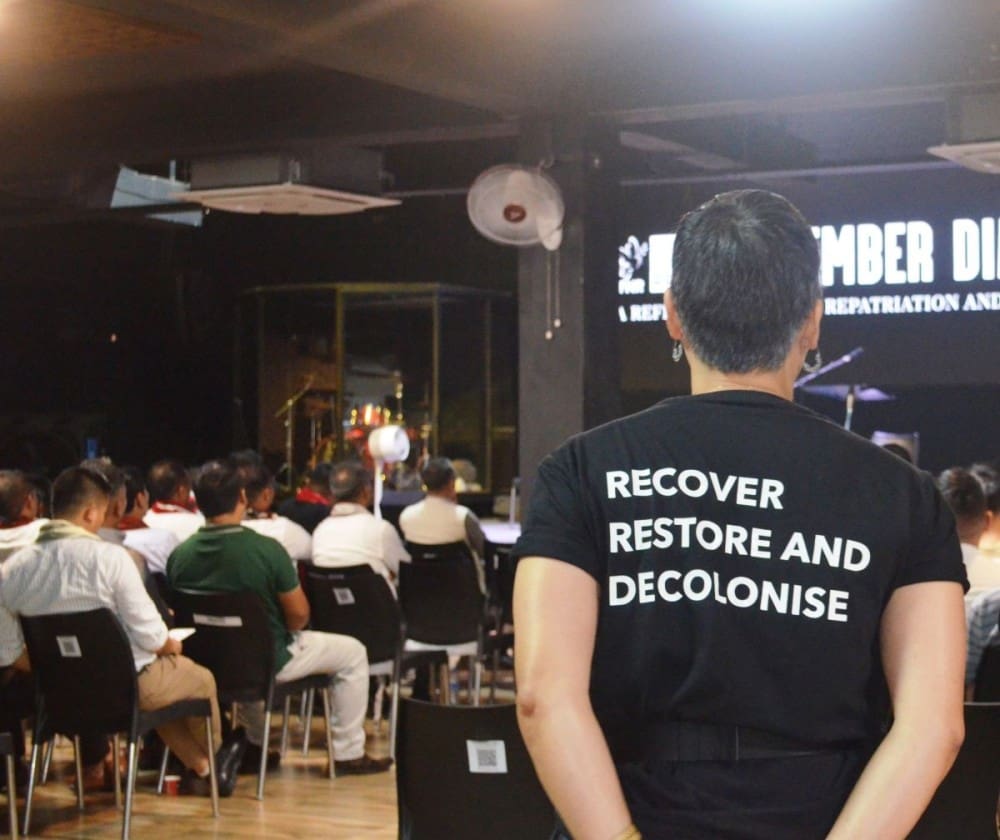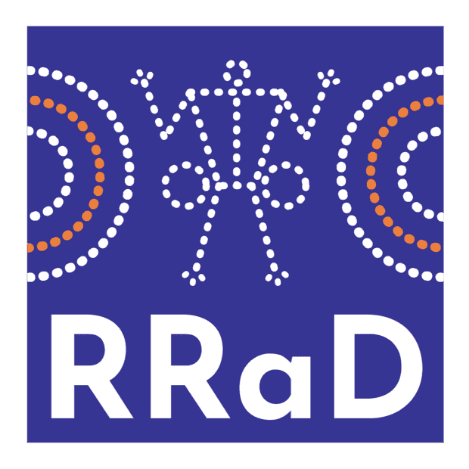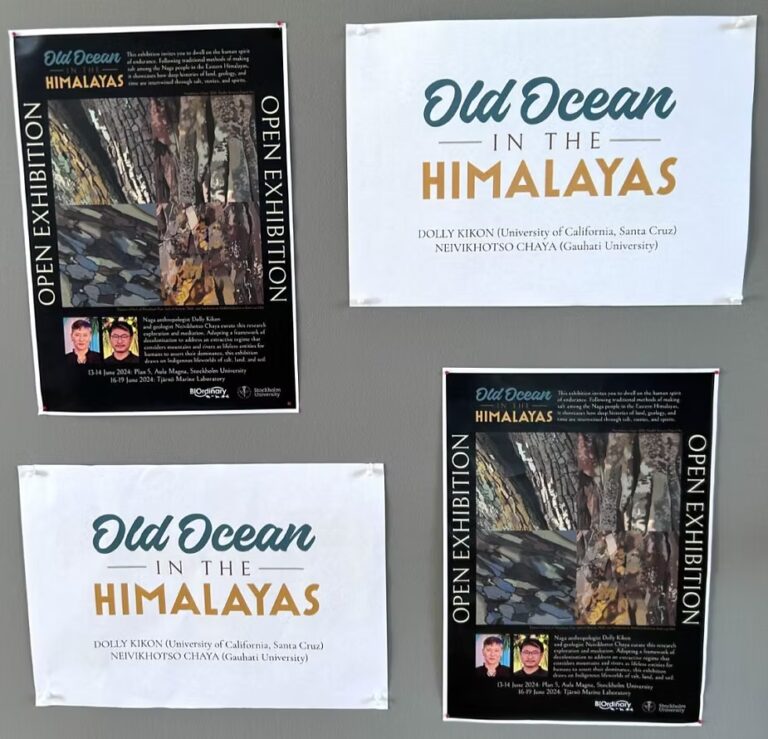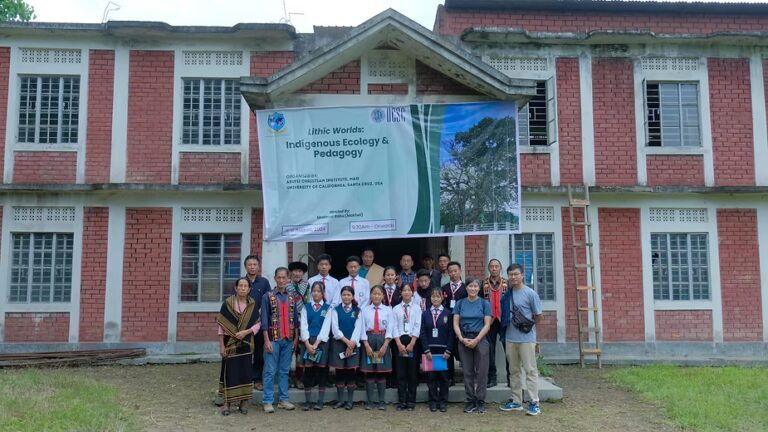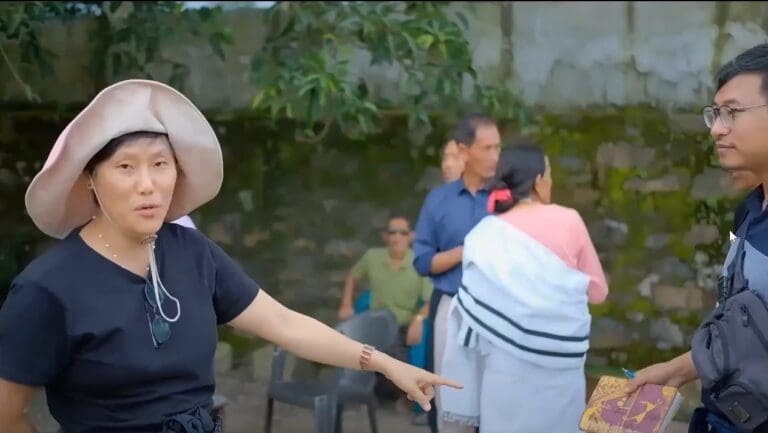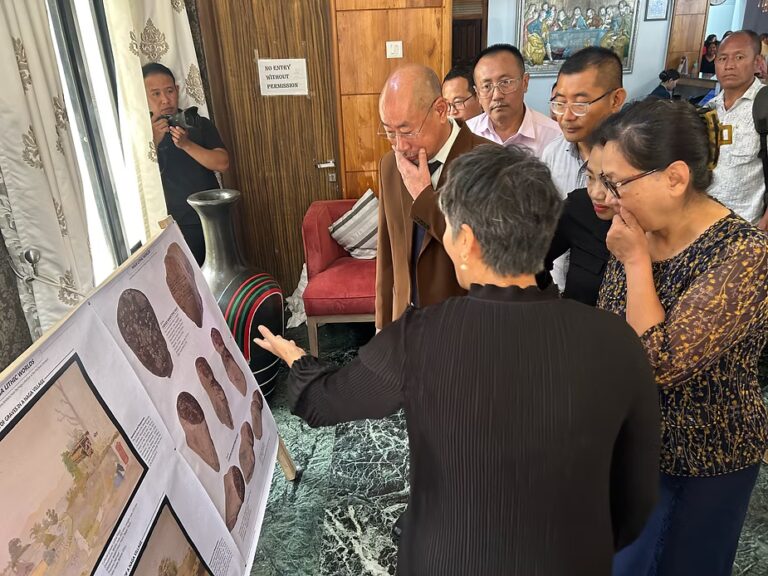Call for unity in Repatriation efforts
Morung Express News
Dimapur | September 6
The Forum for Naga Reconciliation (FNR) and Recover Restore and Decolonise (RRaD) organised the September Dialogue at The Lighthouse Church on September 6, focusing on Naga Repatriation and the way forward.
Sharing his account of the Naga delegation’s visit to the Pitt Rivers Museum and the ‘Naga Oxford Declaration on Repatriation,’ Thejao Vihienuo, President of the Angami Public Organisation, said the journey was filled with mixed emotions. While the thought of how the remains had been taken and exhibited as artefacts was deeply disturbing, he acknowledged the sincerity and hospitality of the Museum Director and staff.
Vihienuo underlined that the process must go beyond physical repatriation, becoming a gesture of apology and a step toward reconciliation. He recalled that, at a preparatory meeting in Dimapur, he had shared that the remains should only be received if accompanied by an expression of regret, and that the State government must be taken into confidence to find a site where the remains could be laid to respectful rest with a monument symbolising the oneness of the Nagas.
Vihienuo reflected that with every engagement in Oxford, the desire to make repatriation a healing process leading to decolonisation became clearer. The delegation considered the adoption of the ‘Oxford Declaration’ a historic step toward decolonisation and reaffirmation of Naga unity. He said it was a moment of great significance and urged all Nagas to come together so the remains of their ancestors could be brought home to peaceful rest, transcending colonial divisions. He added that while the journey of repatriation was yet to begin, it was vital for everyone to work together to make it a reality.
Dr Vihuto Asumi, President of Sümi Hoho, reflected on the visit to Oxford in June this year as a ‘pilgrimage of memory,’ where delegates encountered the remains of their ancestors in foreign custody. The experience, he said, was both painful and healing—painful as it recalled dispossession and betrayal, yet healing as it opened the way for restoration.
For Dr Asumi, the ‘Oxford Declaration’ stood as a voice of commitment, a call to unity, a pathway to healing, and a decolonising process. He stressed that repatriation was not a favour, but a moral necessity for the Naga people.
He emphasised strengthening FNR and RRaD, promoting inter-generational dialogue, advancing documentation and education, enabling holistic healing through rituals of reconciliation, and building global solidarity.
Prof Dr Sanjay (Xonzoi) Barbora, University of California, Santa Cruz, observed that the delegation carried themselves with dignity. They corrected cataloguing errors at the Pitt Rivers Museum showing that colonial knowledge could be challenged through dialogue and respect. He called the visit a ‘momentous occasion’ that reaffirmed the Nagas’ resolve to bring their ancestors home.
Prof Sanjay stressed that repatriation extended beyond the return of remains—it required acknowledging historical violence and dismantling the structures of colonial legacy. He commended the foresight of the Naga delegation in choosing the path of forgiveness while honouring their ancestors. “The Naga delegation in Oxford set an example for all of us. They showed us that we can raise our individual voices to create a collective song of healing,” he said.
The ‘Naga Oxford Declaration’ was affirmed at the event, with hohos and organisations from several Naga tribes signing it.
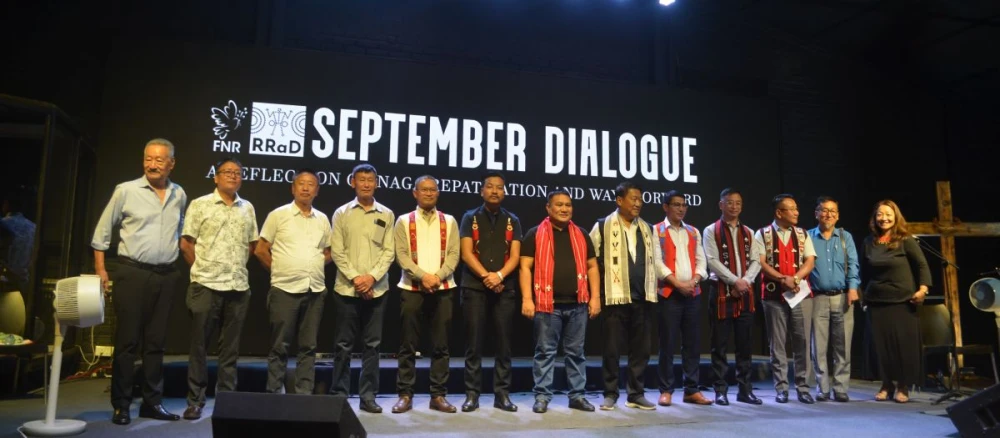
Yearning for return
There was a mix of sorrow, reverence, and hope when six Naga tribal elders, members of a recent Naga delegation to the Pitt Rivers Museum (PRM) in Oxford, UK, shared their experiences of confronting their ancestral past.
The delegation’s visit formed part of a mission to repatriate pre-Christian Naga human remains and artefacts, taken as trophies, by British colonial administrators, which landed up in the PRM vaults. According to the elders, seeing these items firsthand provoked strong emotions.
“Seeing the Naga artifacts and human remains in the Pitt Rivers Museum evoked strong emotions. It felt wrong that these items were there without the consent of our ancestors,” said NT Thamlong Phom, Vice President of the Phom People’s Council. He said he felt disconcerted seeing a history on display in a foreign land while the Naga people themselves remain politically divided. He said he could sense a spiritual connection, as if they were “yearning to return home.”
Talamong Khiamniungan, an Executive Member of the Khiamniungan Tribal Council, explained the profound cultural imperative behind the mission. “As per our tradition, even if we are killed by our enemies or animals, if our dead body is not recovered, we search for the dead for months and years, “he stated. “Our ancestors now lie in UK with no reason, so let us all work together to give them a respectable rest.”
Kumsang Bendangtoshi of the Ao Senden detailed the practical work of the delegation. “We meticulously identified which artifacts belong to our people…” he said. Many of the artefacts were found to have inconsistencies, such as mismatched information, which were corrected in coordination the curator, he said. According to him, no Ao Naga human remains were held by the museum. He donated his own traditional Ao attire to the museum, an act, he said, was hailed by his community.
Rev Peihwang Wangsa, representing the Konyak Union, observed with irony that the museum has siginifcant cultural items that have vanished from Nagaland itself. “Our children growing up now… I don’t think [they] will recognise that these are Naga items, because they have never seen them in use,” he said.
Hukuto Khulu, Joint Secretary of the Sumi Hoho, framed the repatriation not merely as the return of objects and remains, but as a catalyst for healing and Naga unity. He stressed that the work goes beyond human remains to include priceless cultural artefacts taken without consent.
“I think that the past has haunted us, and has rather divided us,” said Jollyson Ronra Shimray, Vice President, Tangkhul Nagaland Long. “Rather, let us ask and work for the most reasonable way forward for Nagas to be together.”
First published in The Morung Express September 6 2025
Link: https://morungexpress.com/naga-leaders-reaffirm-oxford-declaration
